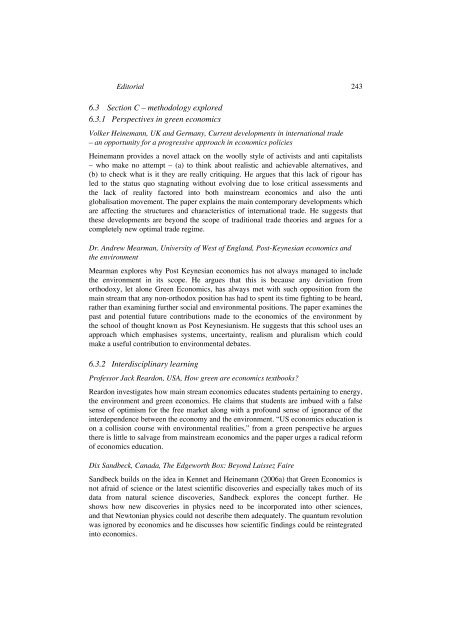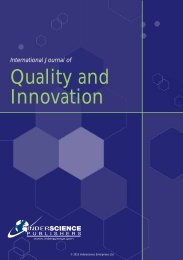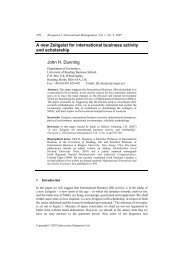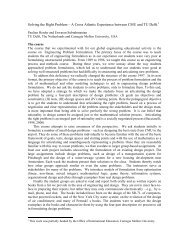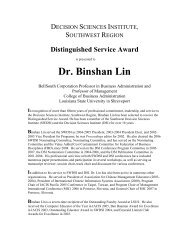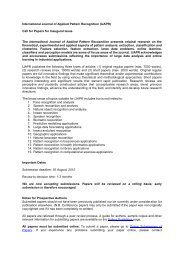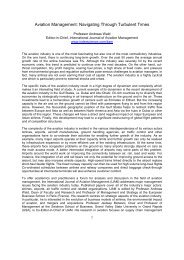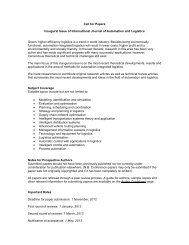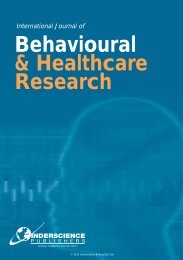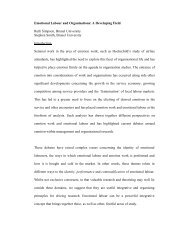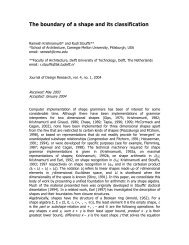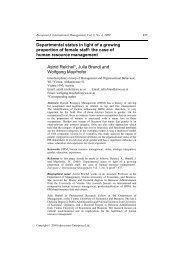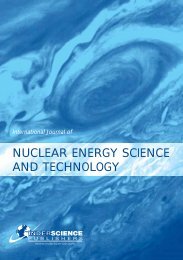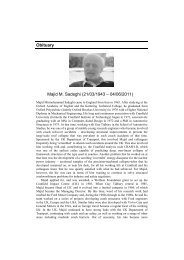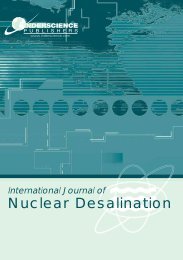Editorial: progress in Green Economics: ontology, concepts and ...
Editorial: progress in Green Economics: ontology, concepts and ...
Editorial: progress in Green Economics: ontology, concepts and ...
You also want an ePaper? Increase the reach of your titles
YUMPU automatically turns print PDFs into web optimized ePapers that Google loves.
<strong>Editorial</strong> 243<br />
6.3 Section C – methodology explored<br />
6.3.1 Perspectives <strong>in</strong> green economics<br />
Volker He<strong>in</strong>emann, UK <strong>and</strong> Germany, Current developments <strong>in</strong> <strong>in</strong>ternational trade<br />
– an opportunity for a <strong>progress</strong>ive approach <strong>in</strong> economics policies<br />
He<strong>in</strong>emann provides a novel attack on the woolly style of activists <strong>and</strong> anti capitalists<br />
– who make no attempt – (a) to th<strong>in</strong>k about realistic <strong>and</strong> achievable alternatives, <strong>and</strong><br />
(b) to check what is it they are really critiqu<strong>in</strong>g. He argues that this lack of rigour has<br />
led to the status quo stagnat<strong>in</strong>g without evolv<strong>in</strong>g due to lose critical assessments <strong>and</strong><br />
the lack of reality factored <strong>in</strong>to both ma<strong>in</strong>stream economics <strong>and</strong> also the anti<br />
globalisation movement. The paper expla<strong>in</strong>s the ma<strong>in</strong> contemporary developments which<br />
are affect<strong>in</strong>g the structures <strong>and</strong> characteristics of <strong>in</strong>ternational trade. He suggests that<br />
these developments are beyond the scope of traditional trade theories <strong>and</strong> argues for a<br />
completely new optimal trade regime.<br />
Dr. Andrew Mearman, University of West of Engl<strong>and</strong>, Post-Keynesian economics <strong>and</strong><br />
the environment<br />
Mearman explores why Post Keynesian economics has not always managed to <strong>in</strong>clude<br />
the environment <strong>in</strong> its scope. He argues that this is because any deviation from<br />
orthodoxy, let alone <strong>Green</strong> <strong>Economics</strong>, has always met with such opposition from the<br />
ma<strong>in</strong> stream that any non-orthodox position has had to spent its time fight<strong>in</strong>g to be heard,<br />
rather than exam<strong>in</strong><strong>in</strong>g further social <strong>and</strong> environmental positions. The paper exam<strong>in</strong>es the<br />
past <strong>and</strong> potential future contributions made to the economics of the environment by<br />
the school of thought known as Post Keynesianism. He suggests that this school uses an<br />
approach which emphasises systems, uncerta<strong>in</strong>ty, realism <strong>and</strong> pluralism which could<br />
make a useful contribution to environmental debates.<br />
6.3.2 Interdiscipl<strong>in</strong>ary learn<strong>in</strong>g<br />
Professor Jack Reardon, USA, How green are economics textbooks?<br />
Reardon <strong>in</strong>vestigates how ma<strong>in</strong> stream economics educates students perta<strong>in</strong><strong>in</strong>g to energy,<br />
the environment <strong>and</strong> green economics. He claims that students are imbued with a false<br />
sense of optimism for the free market along with a profound sense of ignorance of the<br />
<strong>in</strong>terdependence between the economy <strong>and</strong> the environment. “US economics education is<br />
on a collision course with environmental realities,” from a green perspective he argues<br />
there is little to salvage from ma<strong>in</strong>stream economics <strong>and</strong> the paper urges a radical reform<br />
of economics education.<br />
Dix S<strong>and</strong>beck, Canada, The Edgeworth Box: Beyond Laissez Faire<br />
S<strong>and</strong>beck builds on the idea <strong>in</strong> Kennet <strong>and</strong> He<strong>in</strong>emann (2006a) that <strong>Green</strong> <strong>Economics</strong> is<br />
not afraid of science or the latest scientific discoveries <strong>and</strong> especially takes much of its<br />
data from natural science discoveries, S<strong>and</strong>beck explores the concept further. He<br />
shows how new discoveries <strong>in</strong> physics need to be <strong>in</strong>corporated <strong>in</strong>to other sciences,<br />
<strong>and</strong> that Newtonian physics could not describe them adequately. The quantum revolution<br />
was ignored by economics <strong>and</strong> he discusses how scientific f<strong>in</strong>d<strong>in</strong>gs could be re<strong>in</strong>tegrated<br />
<strong>in</strong>to economics.


